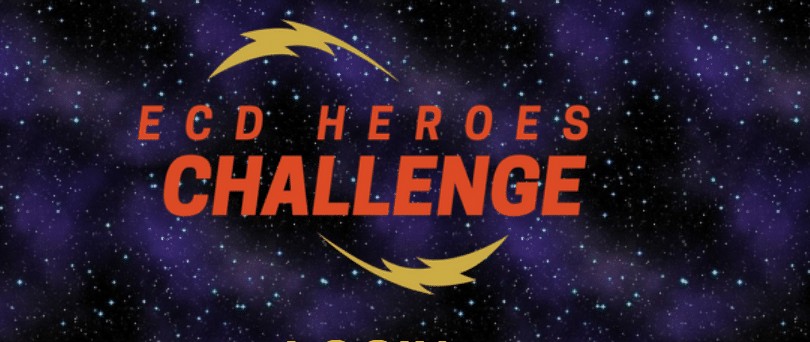As around 800,000 Matric learners prepare for the final exams that will end their school careers, an organisation called Innovation Edge is putting the focus firmly on the beginning end of the education value chain through the ECD Heroes Challenge.
Sonja Giese, Executive Director of Innovation Edge, which seeks solutions for early childhood care and education challenges in under-resourced communities, says that quality early childhood development (ECD) is a critical determinant of future success.
“The foundations for language development, literacy, numeracy, social skills and even higher cognitive functions are all embedded within the brain in the first six years of life,” says Giese. “Enabling positive brain development at the beginning of a child’s life produces better health, education and social outcomes for that child.”
Science is shedding ever-brighter light on the importance of positive experiences in the early years, and there is strong evidence to show that children benefit enormously from participating in high-quality preschool programmes for two years prior to starting Grade 1. Of particular relevance within the South African context, the benefits of ECD are most pronounced for children from under-resourced communities.
Data collected in 2016 on more than 1,300 Grade R learners showed that the performance of the poorest children tends to be lowest – in all areas of development. These children start school at a disadvantage and the gap between them and their better-off peers just widens over time.
And despite government setting an ambitious target of achieving universal and equitable ECD by 2030, almost one million of the poorest three- to five-year-olds in South Africa still have no access to early learning programmes. Further, for those that are enrolled, the quality of the programme is often poor.
“It’s clear that providing universal access to high-quality preschool services will help ensure a fair start for all children,” says Giese. “Yet the prevailing culture continues to undervalue ECD services as well as the ECD practitioners who deliver these programmes.”
Innovation Edge is set to change these poor perceptions with the ECD Heroes Challenge, an eight-week challenge for ECD practitioners that is set to elevate and celebrate the significant role of this educare practitioner in society.
Through the ECD Heroes Challenge, Innovation Edge aims to highlight early childhood education as a desirable profession and to celebrate the work of exceptional practitioners who are willing to put extra effort into their professional development.
One barrier to early childhood education as a career has been the traditional training methods, which call for many hours of instructor-led teaching. To make the training more accessible, the ECD Heroes Challenge breaks the learning down into a series of bite-sized chunks that are accessible on demand from any smart device. Using an app for the Challenge, 500 ECD practitioners will complete 40 action-oriented micro-challenges over the course of an eight-week competition. The challenge is a fun way for practitioners to reflect on their practice and continue their professional development.
During the project, Innovation Edge has embraced the concept of co-creation by partnering with leading ECD organisations that have played a key role in helping to create the weekly challenges. “The input of these organisations has been invaluable, both in terms of creating an enjoyable user experience for the participants, and in developing meaningful content for the challenges.” says Giese.
“The challenge is based on the Allan Gray Orbis Foundation technology platform, which is already recognised as a successful tool for training and development of young entrepreneurs. We are really looking forward to testing this innovative approach to ECD practitioner development and, if successful, we hope to scale this significantly in future years in collaboration with ECD service providers, government, funders and business.”
About the ECD Heroes Challenge
The ECD Heroes Challenge runs from 2 October to 3 December 2017.
The ECD Heroes Challenge can be accessed at https://ecdheroes.co.za
To qualify for the Challenge, ECD practitioners must be working with children between the ages of 2-5 years in home-based, community based or centre programmes
Challenge submissions will be reviewed by peers, and points earned will rank the gamers on a national leader board.
Each week there will be 15 prize winners across five challenges.
Three submissions for each challenge will win their share of R1,000-worth of prizes.
At the end of the eight weeks, the top three finishers will win the following prizes:
- First place – Samsung Galaxy Tab + R10,000 cash
- Second place – Samsung Galaxy Tab + R5,000 cash
- Third place – Samsung Galaxy Tab + R3,000 cash
The final winners will also receive PR exposure to the value of R25,000 for themselves and their centres.


